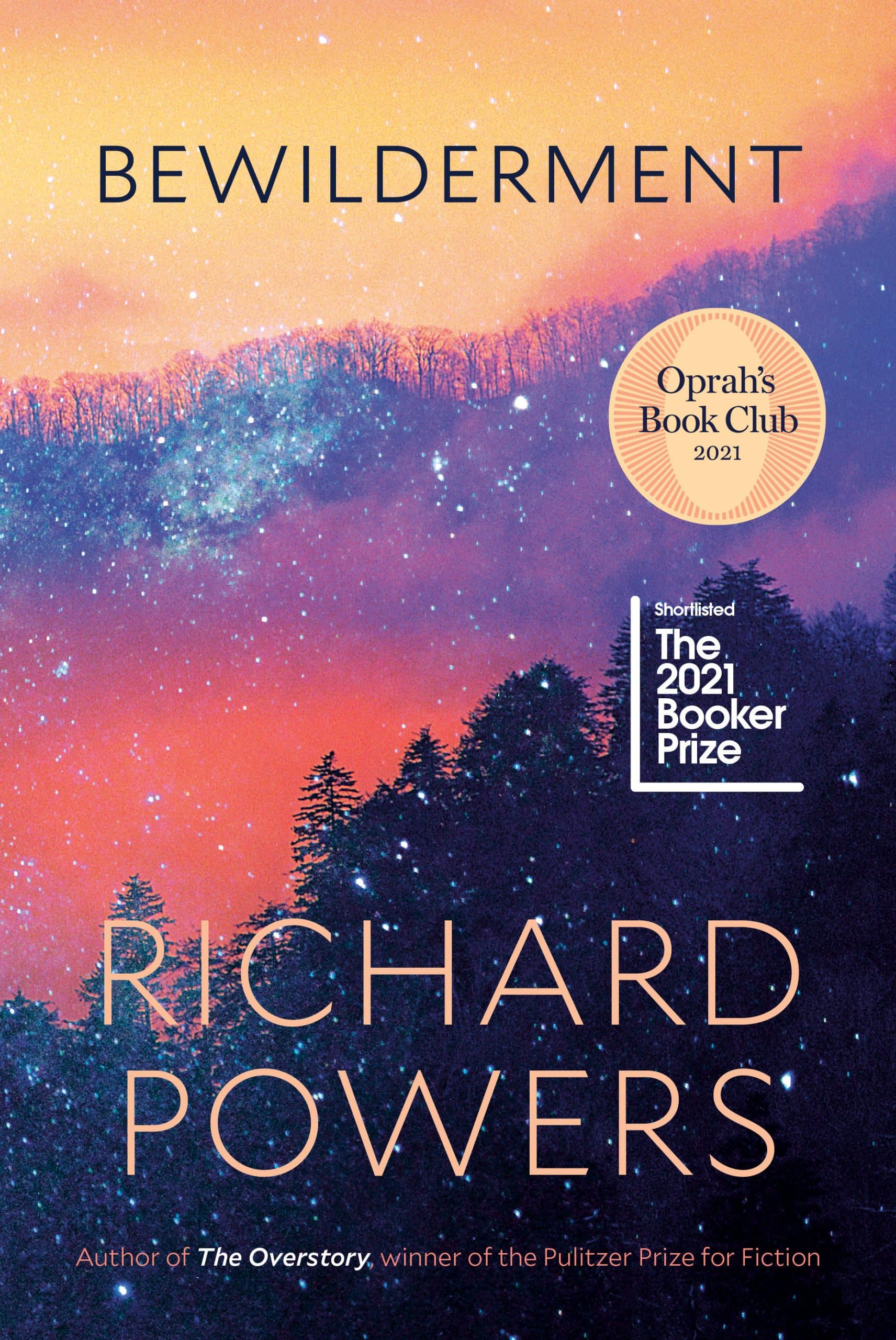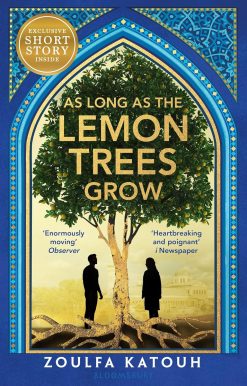Bewilderment: A novel
24.00 JOD
Please allow 2 – 5 weeks for delivery of this item
Add to Gift RegistryDescription
OPRAH BOOK CLUB PICK 2021SHORTLISTED FOR THE 2021 BOOKER PRIZEA heartrending new novel from the Pulitzer Prize-winning and #1 New York Times and internationally bestselling author of The Overstory. Named one of the Most Anticipated Books of 2021 by New York, Chicago Tribune, BookPage, Literary Hub, The Millions, New Statesmen and Times of LondonThe astrobiologist Theo Byrne searches for life throughout the cosmos while singlehandedly raising his unusual nine-year-old son, Robin, following the death of his wife. Robin is funny, loving, and filled with plans. He thinks and feels deeply, and can spend hours painting elaborate pictures of the endangered animals he loves. He is also about to be expelled from third grade for smashing his friend in the face.What can a father do, when the only solution offered to his troubled son is to put him on psychoactive drugs? What can he say when his boy comes to him wanting an explanation for a world that is clearly in love with its own destruction? With its soaring descriptions of the natural world, its tantalizing visions of life beyond and its account of a father and son’s ferocious love, Bewilderment marks Richard Powers’s most intimate and moving novel. At its heart lies the question: How can we tell our children the truth about this beautiful, imperilled planet?
Additional information
| Weight | 2.52 kg |
|---|---|
| Dimensions | 2.65 × 15.85 × 23.68 cm |
| PubliCanadation City/Country | Canada |
| by | |
| format | |
| Language | |
| Pages | 288 |
| publisher | |
| Year Published | 2021-9-21 |
| Imprint | |
| ISBN 10 | 1039000703 |
| About The Author | RICHARD POWERS is the author of twelve novels. His most recent, The Overstory, won the 2019 Pulitzer Prize in Fiction and the 2020 American Academy of Arts and Letters' William Dean Howells Medal for the most distinguished American work of fiction published in the last five years, and was a finalist for the Man Booker Prize. The Overstory has been on the New York Times bestseller list for 63 weeks to date, with more than one million copies in print across all formats. Powers is also the recipient of a MacArthur Fellowship and the National Book Award, among other accolades. |
AN INTERNATIONAL BESTSELLERSHORTLISTED FOR THE 2021 BOOKER PRIZELONGLISTED FOR THE 2021 NATIONAL BOOK AWARDS FOR FICTIONLONGLISTED FOR THE 2022 ASPEN WORDS LITERARY PRIZEAN OPRAH'S BOOK CLUB PICKA HEATHER'S PICKONE OF INDIGO'S BEST BOOKS OF THE YEAR 2021“In Bewilderment [Powers’] mastery strikes a new vein . . . glittering with timeless story elements; it raises goosebumps and breaks our hearts. . . . The author’s shortest work and his most far-seeing. . . . Richard Powers has brought off something more than [the second of] two exemplary and superb fictions of the climate crisis. He’s also unearthed and refurbished the timeless link between artist and shaman, a voice crying in the wilderness.” —The Brooklyn Rail“Soaring descriptions and forthright observations about our planet and the life it supports. . . . [Bewilderment] offers rich commentary on the complex, often mystifying intersections between science, popular culture, and politics. . . . As the bestselling The Overstory continues to reverberate, readers will be excited to turn to another deeply involving Powers novel.” —Booklist (starred review)“[A] taut ecological parable. . . . A touching novel that offers a vital message with uncommon sympathy and intelligence.” —Kirkus Reviews (starred review) “[A] deeply moving and brilliantly original novel.” —2021 Booker Prize Jury“With the moving relationship between father and son, [Bewilderment] is an emotional and poignant read, replete with striking visuals of a devastated world.” —The National“Marvelous. . . . Powers transforms the wrenching story into something sublime. . . . The work of a master.” —Publishers Weekly“[A] profound novel. . . . [Powers’] capacity for world-envisioning offers rapt readers moment after moment of captivating recalibration.” —The New York Times“Powers’ unchained imagination stretches its empathy circle from lichen to nebulae, in finely crafted prose.” —Financial Times (UK)“Among the novel’s many virtues is the mood it radiates of sheer cosmic awe. . . . Impressively precise in its scientific conjectures, Bewilderment is no less rich or wise in its emotionality. . . . Bewilderment channels both the cosmic sublime and that of the vast American outdoors. . . . Sorrowing awe is Bewilderment’s primary tone, and its many remarkable scenes are controlled with high novelistic intelligence.” —The Guardian“Few writers capture nature's glories quite so vibrantly.” —NPR “This is a must-read novel.” —The Associated Press |
|
| Excerpt From Book | BUT WE MIGHT NEVER FIND THEM? We’d set upthe scope on the deck, on a clear autumn night, on the edge of oneof the last patches of darkness in the eastern U.S. Darkness this good was hard to come by, and so much darkness in one place litup the sky. We pointed the tube through a gap in the trees above our rented cabin. Robin pulled his eye from the eyepiece—my sad, singular, newly turning nine-year-old, in trouble with this world.“Exactly right,” I said. “We might never find them.”I always tried to tell him the truth, if I knew it and it wasn’t lethal. He knew when I lied, anyway.But they’re all over, right? You guys have proved it.“Well, not exactly proved.”Maybe they’re too far away. Too much empty space or something.His arms pinwheeled as they did when words defeated him. We were closing in on bedtime, which didn’t help. I put my hand on his wild auburn mop. Her color—Aly’s.“And what if we never heard a peep from out there? What wouldthat say?”He held up one hand. Alyssa used to say that when he concentrated,you could hear him whirring. His eyes narrowed, staring down into the dark ravine of trees below. His other hand sawed the cleft of his chin—a habit he resorted to when thinking hard. He sawed with such vigor I had to stop him.“Robbie. Hey! Time to land.”His palm pushed out to reassure me. He was fine. He simply wanted to run with the question for another minute, into the darkness, while still possible.If we never heard anything, like ever?I nodded encouragement to my scientist—easy does it. Stargazingwas finished for tonight. We’d had the clearest evening, in a place known for rain. A full Hunter’s Moon hung fat and red on the horizon. Through the circle of trees, so sharp it seemed within easy reach, the Milky Way spilled out—countless speckled placers in a black streambed. If you held still, you could almost see the stars wheel.Nothing definitive. That’s what.I laughed. He made me laugh once a day or more, in goodstretches. Such defiance. Such radical skepticism. He was so me. He was so her.“No,” I agreed. “Nothing definitive.”Now, if we did hear a peep. That would say tons!“Indeed.” There would be time enough another night to say exactly what. For now, it was bedtime. He put his eye up to the barrelof the telescope for a last look at the shining core of the Andromeda Galaxy. Can we sleep outside tonight, Dad? I’d pulled him from school for a week and brought him to the woods. There had been more trouble with his classmates, and we needed a time-out. I couldn’t very well bring him all the way down to the Smokies only to deny him a night of sleeping outside. We went back in to outfit our expedition. The downstairs was one great paneled room smelling of pine spritzed with bacon. The kitchen reeked of damp towels and plaster—the scents of a temperate rain forest. Sticky notes clung to the cabinets: Coffee filters above fridge. Use other dishes, please! A green spiral folder of instructions spread on the battered oak table: plumbing quirks, fuse box loca- tion, emergency numbers. Every switch in the house was labeled: Overhead, Stairs, Hallway, Kitchen.Ceiling-high windows opened onto what, tomorrow morning, would be a rolling expanse of mountains beyond mountains. A pair of pilled rustic sofas flanked the flagstone fireplace, emblazoned with parades of elk, canoes, and bears. We raided the cushions, brought them outside, and laid them on the deck. Can we have snacks?“Bad idea, buddy. Ursus americanus. Two of them per square mile, and they can smell peanuts from here to North Carolina.” No way! He held up a finger. But that reminds me! He ran inside again and returned with a compact paperback: Mammals of the Smokies. “Really, Robbie? It’s pitch-black out here.” He held up an emergency flashlight, the kind you charge by cranking. It fascinated him when we arrived that morning, and he’d demanded an explanation of how the magic worked. Now he couldn’t get enough of making his own electrons. We settled into our makeshift base camp. He seemed happy, which had been the whole point of this special trip. Lying down on beds spread out on the slats of the sagging deck, we said his mother’s old secular prayer out loud together and fell asleep under our galaxy’s four hundred billion stars.I NEVER BELIEVED THE DIAGNOSES the doctors settled on my son. When a condition gets three different names over as many decades, when it requires two subcategories to account for completely contradictory symptoms, when it goes from nonexistent to the country’s most commonly diagnosed childhood disorder in the course of one generation, when two different physicians want to prescribe three different medications, there’s something wrong. My Robin didn’t always sleep well. He wet the bed a few times a season, and it hunched him over with shame. Noises unsettled him; he liked to turn the sound way down on the television, too low for me to hear. He hated when the cloth monkey wasn’t on its perch in the laundry room above the washing machine. He poured every dollar of allowance into a trading card game—Collect them all!—but he kept the untouched cards in numeric order in plastic sleeves in a special binder. He could smell a fart from across a crowded movie theater. He’d focus for hours on Minerals of Nevada or the Kings and Queens of England—anything in tables. He sketched constantly and well, laboring over fine details lost on me. Intricate buildings and machines for a year. Then animals and plants. His pronouncements were off-the-wall mysteries to everyone except me. He could quote whole scenes from movies, even after a single viewing. He rehearsed memories endlessly, and every repetition of the details made him happier. When he finished a book he liked, he’d start it again immediately, from page one. He melted down and exploded over nothing. But he could just as easily be overcome by joy. On rough nights when Robin retreated to my bed, he wanted to be on the side farthest from the endless terrors outside the window. (His mother had always wanted the safe side, too.) He day-dreamed, had trouble with deadlines, and yes, he refused to focus on things that didn’t interest him. But he never fidgeted or dashed around or talked without stopping. And he could hold still for hours with things he loved. Tell me what deficit matched up with all that? What disorder explained him? The suggestions were plentiful, including syndromes linked to the billion pounds of toxins sprayed on the country’s food supply each year. His second pediatrician was keen to put Robin “on the spectrum.” I wanted to tell the man that everyone alive on this fluke little planet was on the spectrum. That’s what a spectrum is. I wanted to tell the man that life itself is a spectrum disorder, where each of us vibrated at some unique frequency in the continuous rainbow. Then I wanted to punch him. I suppose there’s a name for that, too. Oddly enough, there’s no name in the DSM for the compulsion to diagnose people. When his school suspended Robin for two days and put their own doctors on the case, I felt like the last reactionary throwback. What was there to explain? Synthetic clothing gave him hideous eczema. His classmates harassed him for not understanding their vicious gossip. His mother was crushed to death when he was seven. His beloved dog died of confusion a few months later. What more reason for disturbed behavior did any doctor need? Watching medicine fail my child, I developed a crackpot theory: Life is something we need to stop correcting. My boy was a pocket universe I could never hope to fathom. Every one of us is an experiment, and we don’t even know what the experiment is testing. My wife would have known how to talk to the doctors. Nobody’s perfect, she liked to say. But, man, we all fall short so beautifully.HE WAS A BOY, so naturally he wanted to see Hillbilly Vegas. Three towns jammed together with two hundred places to order pancakes: What’s not to love? We drove from the cabin, down seventeen winding miles along a stunning river. It took us almost an hour. Robin watched the water, scanning the rapids from the back seat. Wildlife bingo. His new favorite game. Tall bird! He called out. “What kind?” He flipped through his field guide. I was afraid he might get car- sick. Heron? He turned back to the river. Half a dozen more curves and he shouted again. Fox! Fox! I saw him, Dad! “Gray or red?” Gray. Oh, man! “The gray fox climbs persimmon trees to eat the fruit.” No way. He looked it up in his Mammals of the Smokies. The book confirmed me. He groaned and slugged my arm. How do you know all this stuff, anyway? Skimming his books before he woke up helped me keep one step ahead of him. “Hey. I am a biologist, aren’t I?” Ass . . . trobiologist. His grin tested whether he’d just crossed a terrible line. I gaped, equal parts stunned and amused. His problem was anger, but it almost never turned mean. Honestly, a little meanness might have protected him. “Whoa, mister. You just missed getting a time-out for the rest of your eighth year on Earth.” His grin firmed, and he returned to scouting the river. But a mile down that winding mountain road, he put his hand on my shoulder. I was just joking, Dad. I watched the road and told him, “Me, too.”We stood in line for the Ripley’s Odditorium. The place unnerved him. Kids his age ran all over, forming bands of improvised mayhem. Their screaming made Robbie wince. Thirty minutes of the horror show and he begged me to leave. He did better with the aquarium, even if the stingray he wanted to sketch wouldn’t hold still for its portrait. After a lunch of french fries and onion rings, we took the lift to the sky platform. He almost vomited all over the glass floor. White- knuckled, jaw clenched, he declared it fantastic. Back in the car, he seemed relieved to have gotten Gatlinburg out of the way. He was thoughtful on the drive back to the cabin. That would not have been Mom’s favorite place on the face of the planet. “No. Probably not even in her top three.” He laughed. I could get him to laugh, if I chose my moments. That night was too cloudy for stargazing, but we slept outside again, on our rustic cushions with their parades of elk and bear. Two minutes after Robin snapped off his flashlight I whispered, “Your birthday tomorrow.” But he was asleep already. I recited his mother’s prayer softly for the both of us, so I could reassure him if he woke up horrified at forgetting.HE WOKE ME IN THE NIGHT. How many stars did you say there are? I couldn’t be angry. Even yanked from sleep, I was glad he was still stargazing. “Multiply every grain of sand on Earth by the number of trees. One hundred octillion.” I made him say twenty-nine zeros. Fifteen zeros in, his laughter turned to groans. “If you were an ancient astronomer, using Roman numerals, you couldn’t have written the number down. Not even in your whole lifetime.” How many have planets? That number was changing fast. “Most probably have at least one. Many have several. The Milky Way alone might have nine billion Earth-like planets in their stars’ habitable zones. Add the dozens of other galaxies in the Local Group . . .” Then, Dad . . . ? He was a boy attuned to loss. Of course the Great Silence hurt him. The outrageous size of emptiness made him ask the same question Enrico Fermi did over that famous lunch in Los Alamos, three quarters of a century ago. If the universe were larger and older than anyone could imagine, we had an obvious problem. Dad? With all those places to live? How come nobody’s anywhere? |
Only logged in customers who have purchased this product may leave a review.






Reviews
There are no reviews yet.